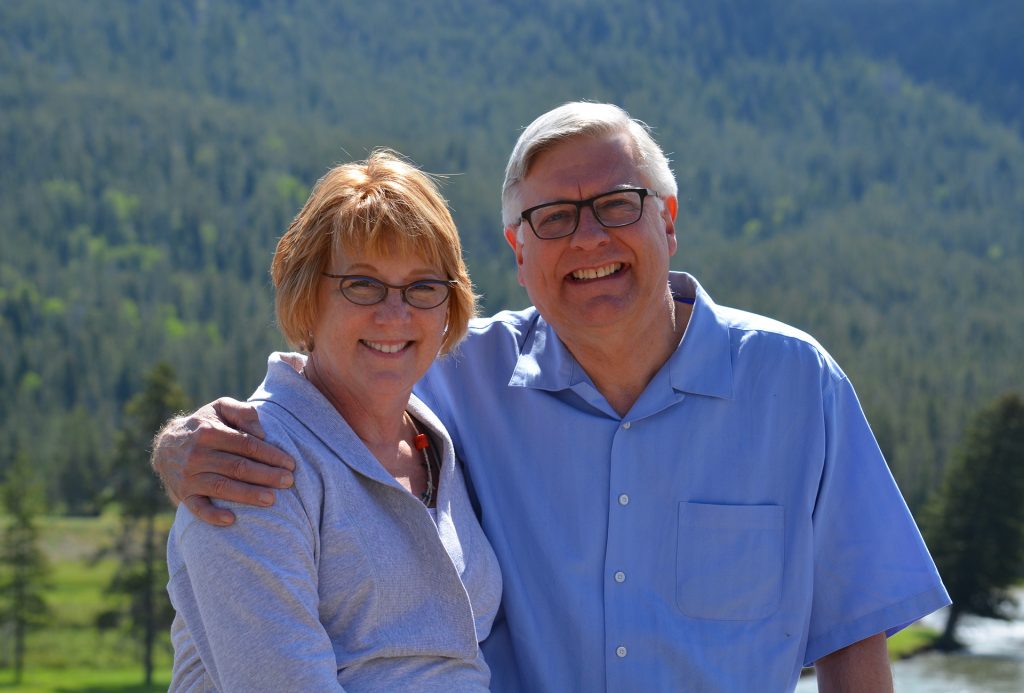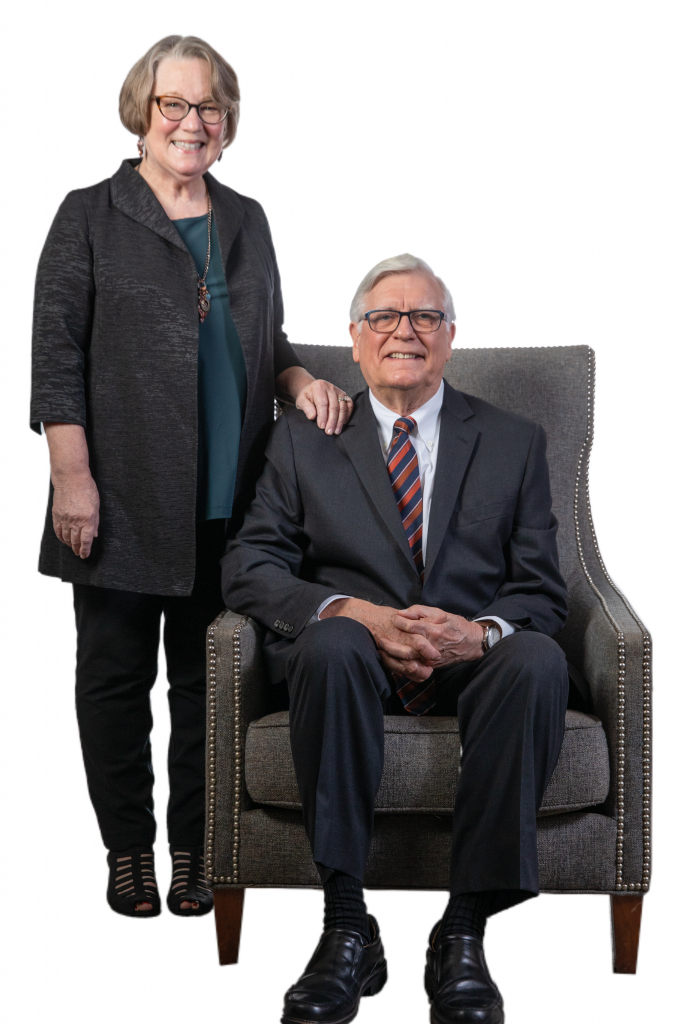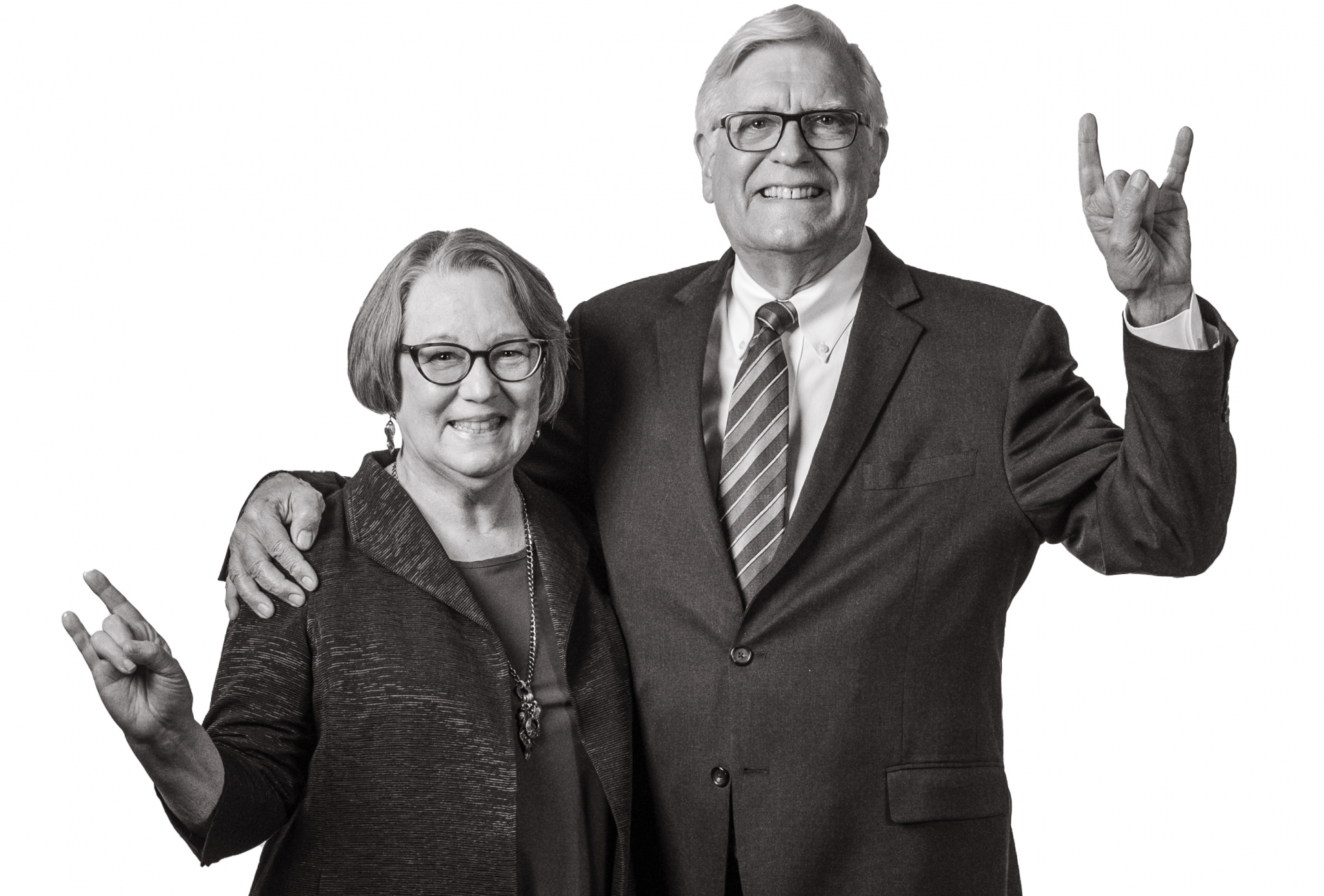Randy Diehl served for 44 years as a psychology professor at The University of Texas at Austin, studying how humans perceive speech and teaching hundreds of undergraduate and graduate students in the classroom and in laboratory. From 2007 to 2019 he was Dean of the College of Liberal Arts, leading a number of programs and departments to national prominence while vigorously promoting the humanities. He also championed efforts to build a new College of Liberal Arts building, and led campus-wide initiatives that sparked dramatic improvements in graduation rates. He served as Psychology Department chair from 1995 to 1999, leading a period of expansion that included the construction of the Sarah M. and Charles E. Seay Building.
Education: B.A. Psychology, University of Illinois; and Ph.D. Psychology, University of Minnesota
Hometown: Freeport, Illinois
Mary Diehl served as a clinical professor and eventually as associate director for UTeach-Liberal Arts from 2000 to 2011. The program gives college students real world teaching experience. Prior, she taught high school Spanish for 24 years in the Round Rock Independent School District (five years at Round Rock High School and 19 years at Westwood High School). She has taught numerous workshops and authored articles on education and foreign language instruction. From 1996 through 1998 she served as president of the Texas Foreign Language Association. She co-authored a workbook for the AP text Abriendo puertas and was a contributing writer for several other textbook series. She received the Texas Foreign Language Association Spanish Teacher of the Year award in 1996 and a College Board Award for Excellence in AP Teaching in 2000.
Education: B.A. Spanish, University of Illinois; and M.A. Spanish Literature, University of Minnesota
Hometown: Freeport, Illinois
What are the ingredients of a good education?
MD: Students need a well-rounded, challenging academic education in classrooms where they feel safe and supported.
What does a liberal arts education provide for students (including those in other fields)?
RD: A liberal arts education teaches students to think critically, to communicate clearly and persuasively, and to understand history and culture. Fundamentally, it prepares students for citizenship. Throughout history, the best leaders have been serious students of the liberal arts.

Why are teachers important to society and how can we make people outside of education better appreciate their contributions?
MD: Can you imagine a society without teachers? I can’t. They are essential. I believe most parents know teachers are very important to their children’s educational success, especially after COVID-19.
What class(es) would you like to see every student take before finishing high school?
MD: Personally, as a former Spanish teacher, I highly recommend taking another language. There are many, many benefits. For me, the most important is that while learning to communicate and interact with others in a new language, students develop a better understanding of and appreciation for other cultures and people.
What are your favorite memories of UT?
RD: My fondest memories are of the intellectual give-and-take with students in the classroom.
MD: Through the UTeach-Liberal Arts program, I had the opportunity to observe my students in area middle and high school classrooms as they honed their teaching skills. Watching these future teachers in action and then discussing the lessons with them afterwards was a unique and rewarding experience.
What accomplishments are you most proud of?
RD: During my time as dean, we managed to continue to recruit and retain outstanding faculty despite serious budgetary limits caused by the Great Recession. One of the joys of the job is the opportunity each year to read about the scholarly and educational work of faculty members being considered for promotion in rank. There is simply no question that the quality of our faculty has improved year after year. The percentage of successful promotion cases has continued to rise even as our standards have become ever more rigorous.
MD: I am very proud to have helped create the UTeach-Liberal Arts program and to have seen the amazing successes in teaching by the program’s graduates.
How has UT, and education in general, changed over the course of your careers?
RD: When I was hired as a new faculty member in 1975, UT was a very good regional university. Today, it is among the top universities in the world. It has been breathtaking to watch, and be a participant in, this growth of excellence.
MD: For me, the most important change in education has been the shift in the role of the teacher from a dispenser of knowledge to that of a guide or facilitator, thus allowing students to actively participate in the learning process.

How do you think COVID-19 will affect the future of education?
RD: COVID-19 has certainly helped us to appreciate the virtues of in-class education. But it has also made us more aware of how technology can be used to enhance the quality of the educational experience.
MD: COVID-19 has certainly thrust educators into the world of online learning without giving them much time for reflective preparation. Hopefully, in the future, teachers will have the opportunity to share what worked and what didn’t so that schools can be better prepared, organized, and effective.
What are some of your favorite places and/or memories from traveling?
RD & MD: Right after we were married in 1970, we did a two-month ‘grand tour’ of western Europe: United Kingdom, France, Spain, Switzerland, Germany, the Netherlands, and Belgium. What a wonderful way to begin our married life together! More recently, some of our favorite destinations include Mexico, Peru, Argentina, Guatemala, China, the maritime provinces of Canada, Israel, Sweden, Norway, Italy, and Greece. We enjoy trips that expose us to both nature and culture.
Why is experiencing new places is so important?
RD & MD: As we have gotten older, we have come to appreciate the value of experiences over material things. Travel is high on our list of experiences we most love. It is very important for us to try to better understand other human cultures; travel to those cultures is key to beginning to understand them. We love to engage in conversation with people from the places we visit. We also love sampling the food!
What books are you currently reading?
RD: I just finished I.F. Stone’s The Trial of Socrates. Currently, I’m rereading Plato’s Collected Dialogues (Hamilton & Cairns, Eds.) Since our trip to Athens in February/March of this year, I’ve mainly focused on ancient Greek history and literature.
MD: While Randy reads many of the classics, I often read bestsellers. Some books I have read during COVID times are Americanah (Chimamanda Ngozi Adichie), Where the Crawdads Sing (Delia Owens), Becoming (Michelle Obama), American Dirt (Jeanine Cummins), A Long Petal of the Sea (Isabel Allende), and The Water Dancer (Ta-Nehisi Coates).
What does it mean to be a lifelong learner?
RD & MD: Put simply: To stop learning is to stop living.
Check back for more interviews with our 2020 Pro Bene Meritis recipients. The Pro Bene Meritis award is the highest honor bestowed by the College of Liberal Arts. Since 1984, the annual award has been given to alumni, faculty members and friends of the college who are committed to the liberal arts, have made outstanding contributions in professional or philanthropic pursuits or have participated in service related to the college.
